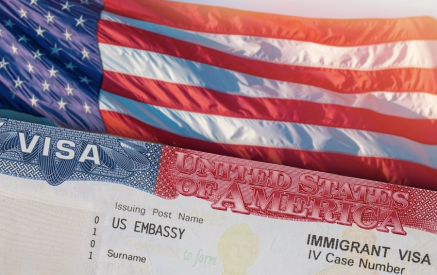JAMnews. Top stories in local media.
Tuesday, August 19, Armenia. Pashinyan: “When we speak of Armenian territories under Azerbaijani control, we must acknowledge that Azerbaijani territories are under Armenian control as well”
● Prime Minister Nikol Pashinyan addressed the nation. The speech was unexpected, and before it began, rumors spread on social media that he might announce snap elections. However, at the appointed time, the prime minister opened with the words: “The summit organized by U.S. President Donald Trump at the White House on August 8, 2025, was a turning point,” and went on to explain why he considers the meeting with U.S. and Azerbaijani leaders in Washington a new starting point for Armenia. “Peace has been established between Armenia and Azerbaijan; since August 8, we have been living in an entirely new reality. This is a new South Caucasus, this is a new Armenia,” he said, stressing the “invaluable role” of the U.S. president.
The prime minister added that after the publication of the initialed peace agreement with Azerbaijan, “conspiracy theories surrounding it collapsed like a house of cards.” He listed the main results of the Washington agreements for Armenia:
- After more than 30 years of isolation, the country is being unblocked,
- All communications between Armenia and Azerbaijan will open within the framework of territorial integrity, sovereignty, jurisdiction, and inviolability of borders,
- Armenia will truly become a crossroads of peace, implementing the “Crossroads of Peace” project and receiving major investments.
● Pashinyan also addressed the most common question of the last 10 days: if Armenia and Azerbaijan recognize each other’s territorial integrity, what will happen to more than 200 sq. km of Armenian territory under Azerbaijani control? “Both sides recognized the inviolability of borders and territorial integrity on the basis of the 1991 Alma-Ata Declaration. This means that the territories of Armenia and Azerbaijan are defined by the borders of the former union republics. These issues must be resolved in the process of demarcation and delimitation. And here a new logic of peace applies: when we speak of Armenian territories under Azerbaijani control, we must acknowledge that Azerbaijani territories are under Armenian control as well. A solution is possible only through a mutual approach,” said Pashinyan.
Read also
● Pashinyan also touched upon the issue of repatriating Armenians imprisoned in Baku, noting that this topic was deliberately excluded from the peace treaty so as not to delay it with lengthy negotiations. At the same time, he assured that persistent diplomatic efforts are being made for their speedy return.
● Iranian President Masoud Pezeshkian arrived in Yerevan on August 18 with an official visit. On the first day, no meetings with Armenian leadership were announced. Before departing from Tehran, he told journalists at the airport that “the visit to Armenia is a continuation of priority trips to neighboring countries.” He emphasized that Iran has strong, strategic relations with Armenia and all the necessary conditions for this have been created: “Communication between Iran and Armenia is maximally facilitated. Therefore, during this visit we will discuss ways to strengthen our agreements and ties, including communication and cultural routes, particularly the North–South Corridor.”
The Iranian president also raised concerns about the presence of American companies on the soon-to-be-reopened road linking Azerbaijan with its exclave Nakhichevan through Armenian territory. “They now represent the interests of this company, but in the future may engage in other activities as well. We will discuss these issues with Armenian officials. On other matters, including technical, engineering, construction, mining, artistic, social, and tourism, excellent documents have been prepared. Their signing is planned,” Pezeshkian said.
● The possibility of increasing U.S. investment in Armenia and expanding Armenian-American economic cooperation was discussed by U.S. Ambassador Kristina Kvien and Goar Abajyan, CEO of Enterprise Armenia, the national investment promotion agency established by the Armenian government and overseen by the prime minister. “We are pleased to continue our partnership aimed at promoting economic prosperity both in the United States and in Armenia,” the U.S. Embassy said in a statement.
● “Exports of processed food products from Armenia to the EU increased by 56%, alcoholic beverages by 20%, and aluminum products by 35%,” said Minister of Economy Gevorg Papoyan, comparing data from January–July 2024 to the same period in 2025. He explained that the growth was made possible by a government support program: “The state compensates customs duties on finished products exported to the EU,” the minister wrote on Facebook.
● In Etchmiadzin, immediate release was demanded for Archbishop Mikael Ajapahyan and Russian businessman Samvel Karapetyan. “By extending the arrest of Archbishop Mikael Ajapahyan and philanthropist Samvel Karapetyan, the court once again violated the principle of justice, demonstrating complete dependence on the ruling political force,” the statement read.
Criminal proceedings against Ajapahyan were initiated for “public calls to seize power and violently overthrow the constitutional order.” Russian billionaire Samvel Karapetyan was arrested under the same charge a week earlier. Initially, the court ordered two months’ detention for both, which has now been extended for another two months. Armenian experts see a connection between these arrests and the attempted coup recently foiled by Armenia’s security services, suggesting a “Russian trace” behind it, read more here
● 100 children from families resettled from Nagorno-Karabakh to Armenia returned from a week-long trip to Hungary. Reports say they participated in various intellectual and sports competitions, educational and recreational activities. They were accompanied by social workers, psychologists, and teachers. The program is jointly implemented by the governments of Armenia and Hungary.
Tuesday, August 19, Azerbaijan. MP: “Azerbaijan’s response to Russia’s attack on SOCAR facilities in Ukraine could be supplying weapons to Kyiv”
● Another arrest of ethnic Azerbaijanis in Russia – in Voronezh, the head of the local Azerbaijani diaspora and co-owner of the city’s largest market, Yusif Khalilov, has been detained. Russian media report that he is accused of giving a large bribe to a doctor. Khalilov has refused to testify and does not admit guilt. He faces 7 to 12 years in prison and deportation.
Earlier in Russia, the leader of the Azerbaijani diaspora in the Urals, Shakhin Shykhlinski, and his son Mutvaly were arrested. Relations between Azerbaijan and Russia deteriorated after Russian air defense forces shot down an Azerbaijani passenger plane last December. Tensions escalated again in June, when Russian special forces killed two Azerbaijanis and injured several others during an operation. Baku opened a criminal case against Moscow, read more here
● “Russia deliberately attacked an Azerbaijani energy facility in Odesa. This was a blow both to Ukraine’s energy independence and to relations (with Azerbaijan),” wrote Ukrainian President Volodymyr Zelensky on social media. As a result of two Russian missile strikes, an oil depot owned by the Azerbaijani state company SOCAR and a compressor station transporting Azerbaijani gas to Ukraine were damaged. Experts in Baku say this was a warning to Azerbaijan, read more here
● Member of Parliament Rasim Musabekov told the Azerbaijani service of Radio Liberty that “the Azerbaijani government’s response to Russia’s attack on SOCAR facilities in Ukraine could be supplying weapons to Kyiv.”
● “Ukraine considers the signing of the Joint Declaration between Azerbaijan and Armenia in Washington on August 8 an important step toward lasting peace in the South Caucasus,” wrote Ukrainian Parliament Speaker Ruslan Stefanchuk following a phone call with Azerbaijani Parliament Speaker Sahiba Gafarova. Stefanchuk invited his Azerbaijani colleague to visit Ukraine and to participate in the 4th Parliamentary Summit of the Crimea Platform in Stockholm.
● “The Washington agreements are an unconditional success for Armenia, Azerbaijan, and the United States,” Armenian Prime Minister Nikol Pashinyan said in his address to the nation. “They make our state reliable, stable, and enduring, strengthen our independence and sovereignty, and make our prosperity and happiness realistic – this is the strategy of all our strategies.”
● Nikol Pashinyan: “Armenia and Azerbaijan recognized each other’s inviolable borders and territorial integrity back in the Alma-Ata Declaration of 1991. This means that both sides proceed from the fact that the territories of the two countries are legally identical to those of the former union republics of the Armenian SSR and the Azerbaijani SSR. This reality must be resolved in the process of border demarcation.”
● Iranian President Masoud Pezeshkian has arrived in Armenia on his first official visit. From Yerevan, he will travel to Belarus. In April, Pezeshkian paid an official visit to Azerbaijan.
● The OSCE Chairmanship, currently held by Finland, has begun necessary steps in response to the joint request by Azerbaijan and Armenia to dissolve the Minsk Group, which was established in the early 1990s to facilitate negotiations on the Karabakh conflict. This was announced by OSCE representative, Finnish diplomat Toni Sandell.
● Over the past week, 30 anti-tank mines, 153 anti-personnel mines, and 673 unexploded ordnances have been discovered and neutralized in territories liberated from Armenian occupation. An area of 362.7 hectares has been cleared, the Azerbaijani state demining agency ANAMA reported. According to the agency, “more than one million hectares remain mined in the territories of Azerbaijan liberated after the Second Karabakh War. Since the end of hostilities in autumn 2020, 243 mine explosions have been recorded in these areas, killing 70 people and injuring 330.”
● The trial of former leaders of the self-proclaimed Nagorno-Karabakh Republic (NKR) continues. They are accused of war crimes, terrorism, attempts to overthrow state power, and other serious offenses. The lawyer of Bako Sahakyan (NKR “president” from 2007 to 2020) requested a confidential meeting with his client. According to the state agency AZERTAC, the lawyer of Araik Harutyunyan (NKR “president” in 2020–2023 and “prime minister” in 2007–2017) asked for a phone call with his client directly in the courtroom. The judge granted both requests, declaring a recess. Afterward, testimonies were heard from victims of Armenian armed forces attacks and from people who were tortured in captivity. Dozens of individuals shared accounts of violence and the killing or torture of relatives during the First Karabakh War in the early 1990s and the Second Karabakh War in 2020. The trial will resume on August 21.
● Three foreign tourists have been arrested for three months after filming inappropriate videos at the Alley of Martyrs and posting them on social media. A criminal case has been opened under Article 245 of the Criminal Code: “desecration of a grave.”
● August has been declared “Arabic Language Month” in Azerbaijan at the initiative of the International Arabic Language Academy in Saudi Arabia. An official opening ceremony was held at Baku State University with the participation of the Academy’s Director-General, Professor Abdullah Al-Washmi, and his delegation. The university is hosting poetry, recitation, and essay competitions in Arabic.
● The average fixed broadband internet speed in Azerbaijan has doubled compared to last year, reaching 82.58 Mbps. The country ranked 81st out of 153 countries in this indicator. Singapore tops the list with 386.96 Mbps, while Syria is last with 3.29 Mbps. (Data: Speedtest Global Index)
Tuesday, August 19, Georgia. The Netherlands is suspending the MATRA program supporting the rule of law in Georgia due to the “steps taken by the government”
● Activists Tornike Toshkhua and Mindia Shervashidze (pictured below), detained on charges of group violence during a protest at parliament, remain under arrest pending investigation. They face up to two years in prison. The court did not consider the defense’s arguments for their release on bail. The lawyer accused the prosecution of falsifying evidence, claiming that a knife, with which the alleged victim Beka Gotsiridze attacked the activists, was concealed from the case. He stated that he obtained video footage showing Gotsiridze attacking the defendants with a knife, police seizing the weapon, and forcing a witness to sign documents. According to the defense, the alleged victim is a supporter of the ruling party who had threatened the defendants for months, and the prosecution is protecting him for political reasons. The prosecutor, however, dismissed the lawyer’s accusations as unfounded, saying the seized videos show the opposite: the defendants attacking the victim, who did not have a knife.
● The Netherlands is suspending the MATRA program supporting the rule of law in Georgia. A statement from the Dutch Embassy said the reason is the “deteriorating situation in the country and the steps taken by the government.” “Over the years, about two hundred Georgian officials and public servants took part in training within the MATRA ‘Rule of Law’ program, which made a significant contribution to strengthening Georgia’s state institutions. Program alumni make up a significant part of our embassy’s contacts. We hope that in the future, as the situation in the country improves, we can once again welcome Georgian participants,” the statement read.
● Tbilisi Mayor Kakha Kaladze: “It is completely unclear what the new laws ‘On Foreign Influence’ and ‘On Grants’ have to do with the visa-free regime with the EU. The threats to cancel this regime are simply an attempt to punish the Georgian people. Don’t think they have any good intentions. Their claims that they care about the Georgian people are a very big lie, a lie. If they were truly real friends, they wouldn’t call on us to join sanctions [against Russia], there wouldn’t be blackmail in the offices of ministers, the prime minister, and the party chairman to open a second front. These are big countries with their own interests, but we have brains, don’t we? We must not allow anyone to use our small country in the interests of some big state. What is happening in Ukraine is a complete disaster, which is why the pragmatic policy of ‘Georgian Dream’ must continue.”
● The opposition coalition Lelo – Strong Georgia and the party Gakharia for Georgia have nominated Irakli Kupradze as their joint candidate for Tbilisi mayor in the municipal elections on October 4. Tata Khvedeliani and Aleko Elisashvili have been nominated as deputy mayor candidates, while Giorgi Sharashidze will run for chair of the Tbilisi City Council. The two political groups signed a memorandum of cooperation on July 14 to coordinate for the October 4, 2025, local elections.
● Russia’s FSB stated that Ukraine planned a terrorist attack on the Crimean Bridge, and that the bomb was brought in through Georgia. “A car containing a powerful improvised explosive device arrived in Russia from Ukraine, transiting through several countries. It crossed the Russian-Georgian border in the Republic of North Ossetia via the international checkpoint ‘Zemo Larsi’ and was to proceed to the Krasnodar region on a private car transporter,” the statement said. According to the FSB, the vehicle was intended to be handed over to a person who would cross the Crimean Bridge and become an “unwitting suicide bomber.” More details here























































